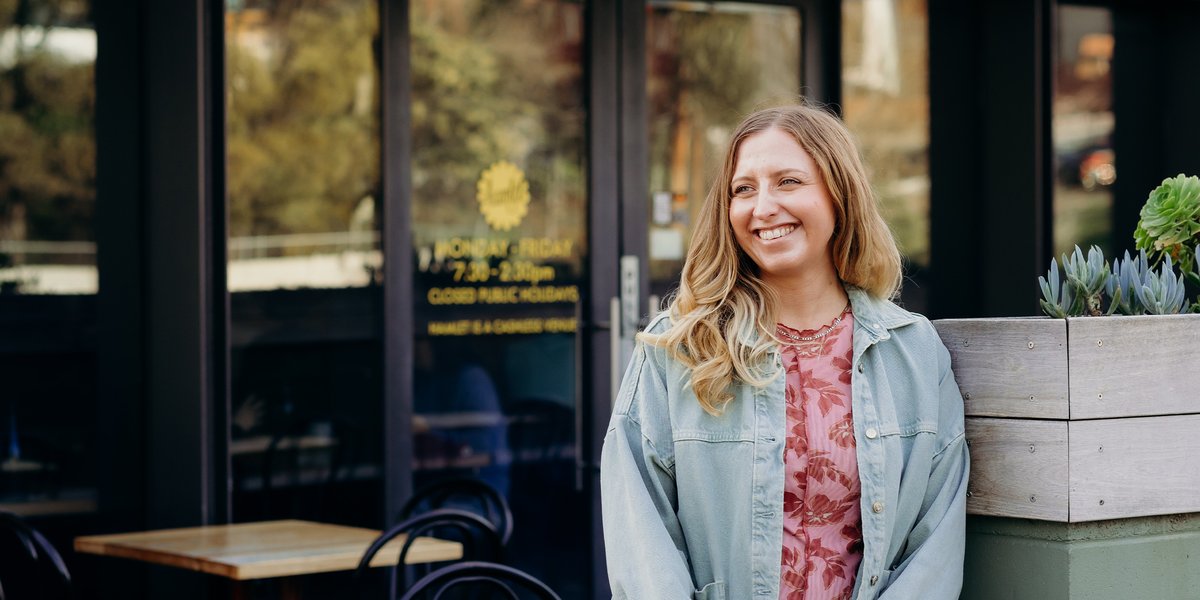Brendan Cooper & Luke Cripps
“The more families that we work with, the better the environment is going to be because of that, so taking care of the people that are in the place that you live is just as important.”
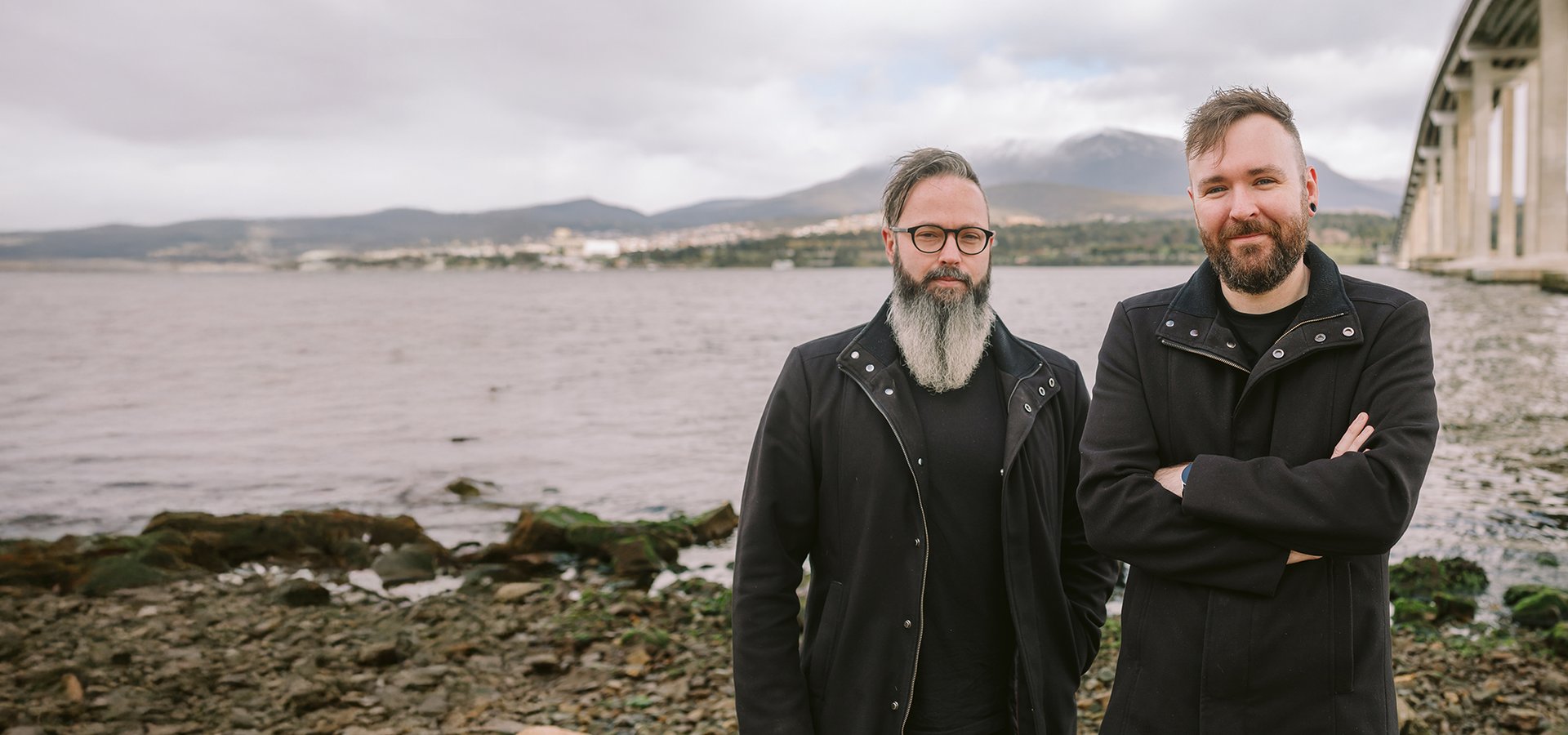
“We say to the families straight away, ‘Call us, text us, email us, come in. Whatever you want, any time. We’re always here and available.’”
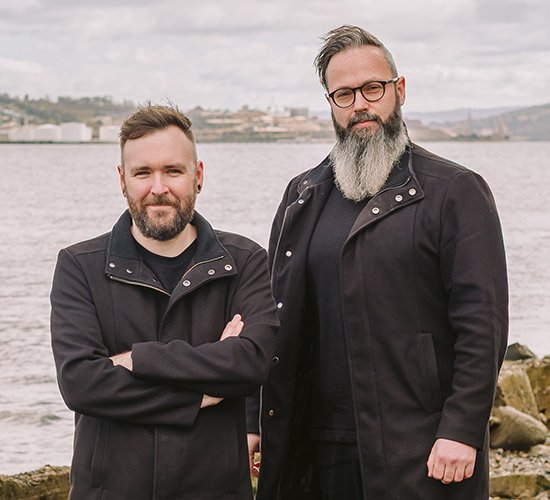
Content warning: This story deals with topics of death
There comes a point in many people’s lives when they begin to think about death. Not how they’re going to die or what lies beyond. They think about the mundane details.
A will to be written. Bank accounts to close. Passwords to hand over to someone trustworthy. And of course, what to do with the body. That last part is where Luke Cripps and Brendan Cooper come in, but they don’t deal with it in the way you might expect.
Their specialty is water cremation, and they offer this service through their company, Alluvium Water Cremations, which is the first of its kind in Tasmania. Often dressed in black, Luke with glasses and Brendan with ear gauges, both have calm, gentle voices that are soothing to listen to, even when talking about confronting topics.
Luke is the storyteller, his passion for all things dark, odd, and off-putting hanging off every word like an accent. “I’ve always been interested in things that people find difficult to talk about, things that people find challenging to enter into a conversation around,” he says. He first worked in disability, before a local funeral home he knew asked if he’d consider giving funeral work a go. He said yes and has been in the death space ever since.
Brendan’s a man of fewer words. He distils Luke’s musings to their essence, and with a background in technology and communications, he keeps the business side of things running smoothly. If there’s a meeting to go to, he’s the one to remember it. They make an ideal pairing.
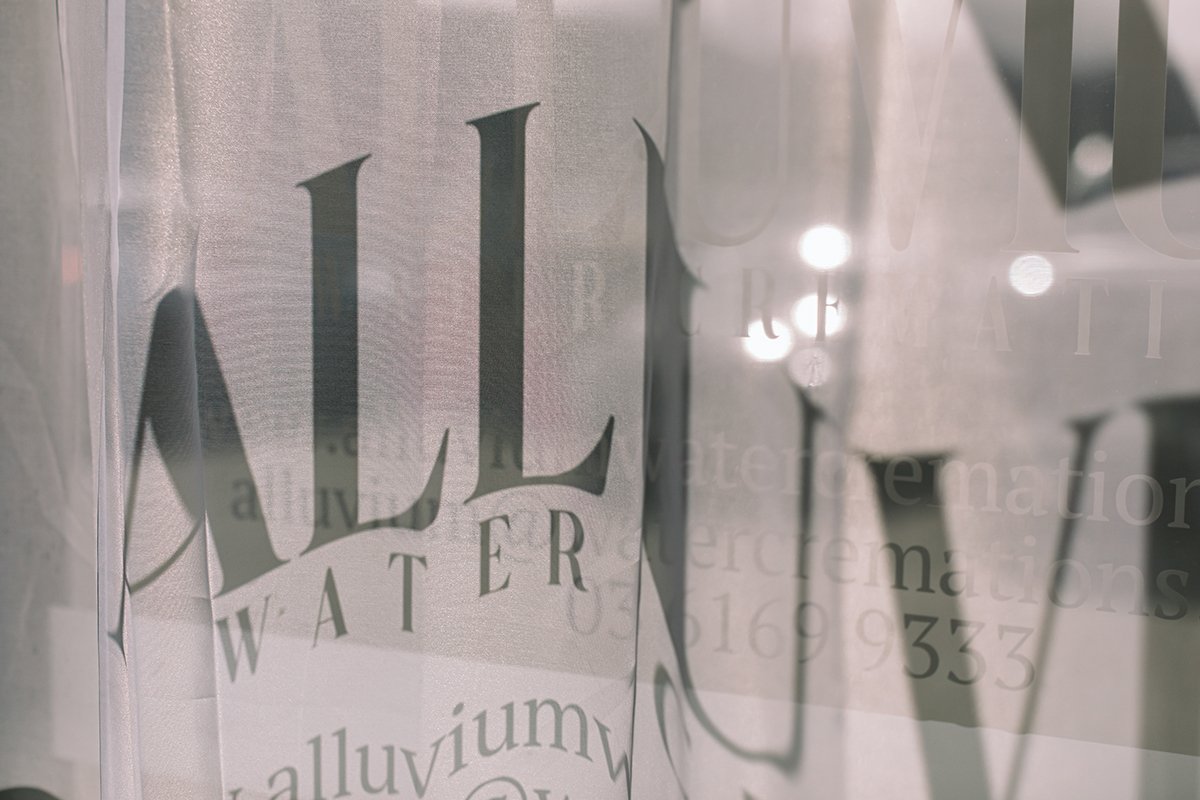
They met about six years ago, as many adults do: through their kids. Their daughters went to the same school and quickly became close friends. In time, Luke and Brendan, and their wives, became friends too.
“After many chats around the campfire and some drinks, we decided that we’d like to look into doing something in this space,” Brendan says. Something more sustainable, they thought, inspired by their love for Tasmania.
A few things stood out to Luke based on his experience in the industry. The environmental toll of traditional methods, from flame cremation emissions to the land-use of burials, and the lack of meaningful service offered to families, despite high costs. He felt there had to be a better way. Something gentler on the planet and more supportive for those left behind.
These were the conversations that fuelled those campfires. That drive to create a more eco-friendly, transparent and meaningful end-of-life experience became the foundation of Alluvium. That’s how water cremation entered the picture. Luke had long been curious about it but wasn’t sure Tasmania was ready. It wasn’t until Brendan did some digging and sent through the research that they decided to give it a go.
Compared to flame cremation, water cremation produces no harmful emissions, doesn’t rely on fossil fuels, and is incredibly energy efficient, using over 90 per cent less energy and producing just 10 per cent of the carbon footprint compared to flame cremation.
“It’s an absolute no-brainer on so many levels, in terms of methods of alternative human disposition compared to flame or burial,” Luke says.
Water cremation is a pair of words that certainly triggers the imagination, so let’s get it out of the way. It involves placing a body in a stainless steel chamber, filling it with a mix of water and alkali salt, and heating it to around 90 degrees Celsius for about ten hours to accelerate the decomposition process. When it’s done, only the bones remain. These are then processed into what we know as ashes.
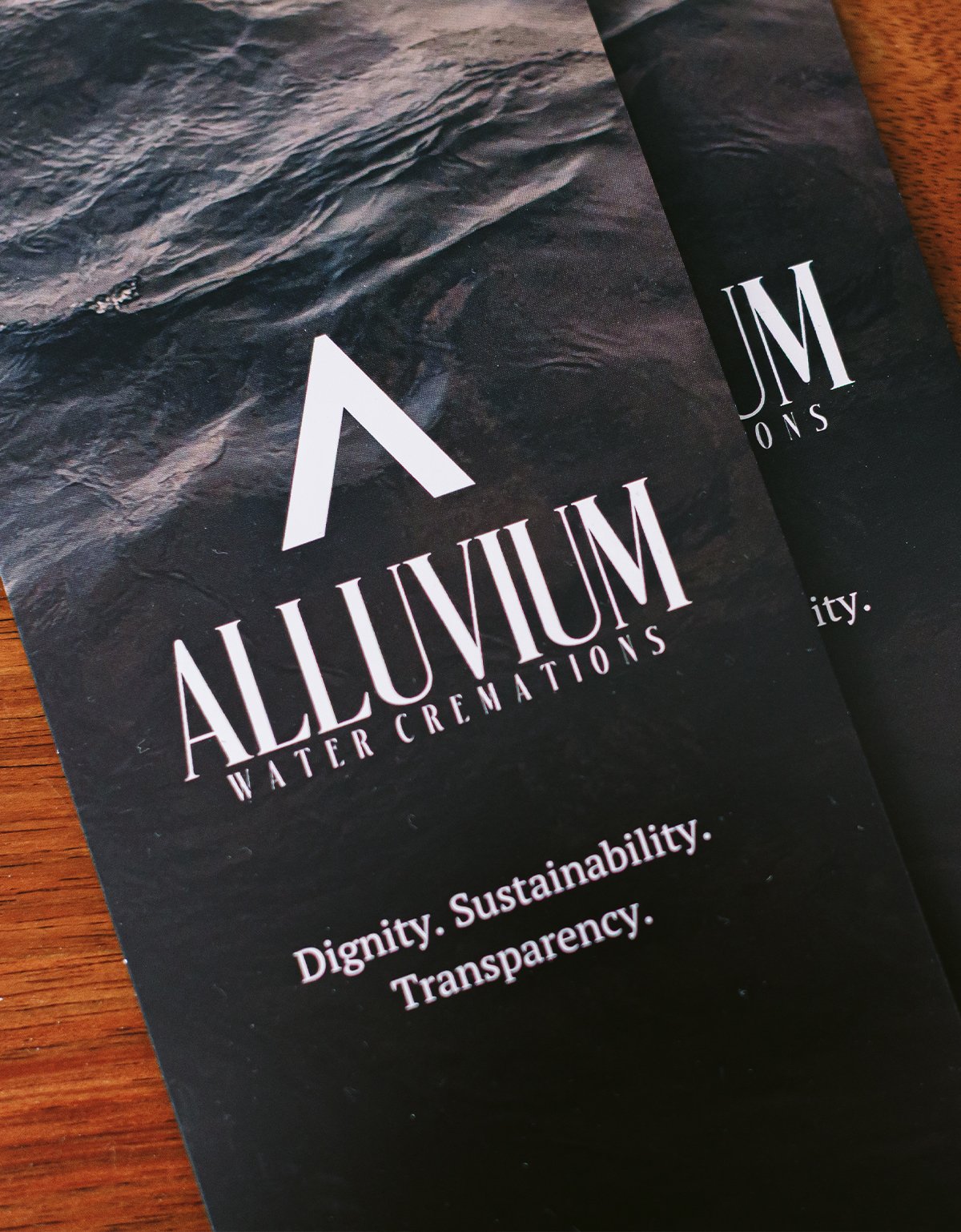
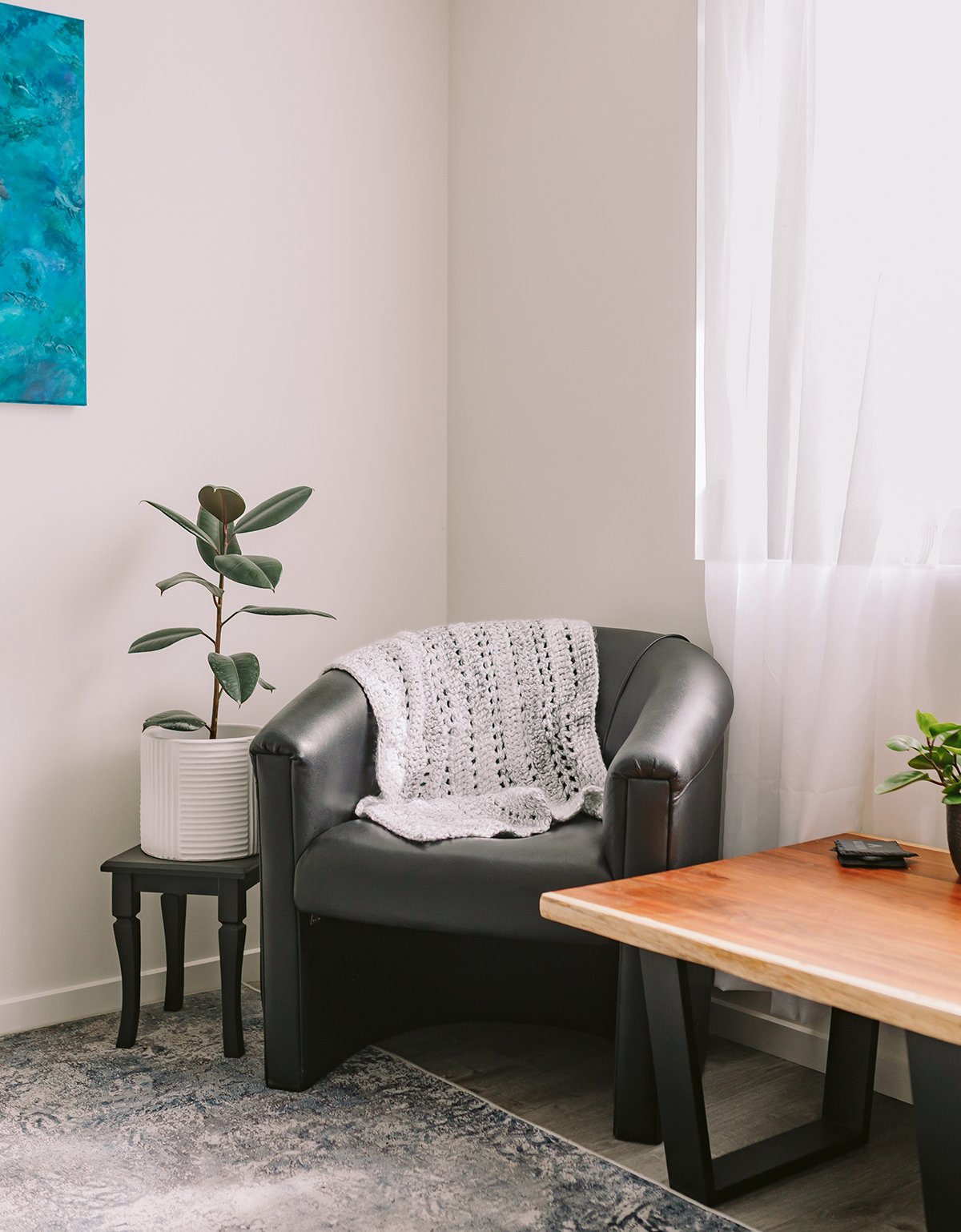
“In the face of death, nobody knows what to do. They don’t know how to speak about it, they don’t know how to relate to people about it, and so, because it feels so weighty, they don’t want to feel like they do the wrong thing, so they don’t do anything.”
Opening Alluvium was a nerve-racking experience for both men, mainly because they had no idea how the public would respond. After all, no one else in Tasmania was offering this service. And beyond the cultural side of things, the legal and administrative hurdles were a battle and a half. There was a wall of legislation to think through, so the process was full of setbacks and U-turns, yeses that turned into nos. But they persevered. After beginning construction and setting all the necessary steps in motion, only to be told they couldn’t proceed unless the legislation changed, what did they do? “We got the legislation changed,” Luke says, smiling.
Then they opened. “People started booking services with us, like almost immediately,” Luke remembers. In dealing with families, Luke and Brendan try to be transparent about every part of the process. They even run what they call Transparency Tours to educate the curious on what this process is.
The first family they worked with had read an article about them and knew it was right. It became Tasmania’s first water cremation service. Luke says it was an unbelievable experience, after having gone through the long and difficult process of getting started.
“It was humbling to have a Tasmanian family get here and go, ‘We trust you with this person’, for the first time this process had ever been completed in the state,” he says.
Families have responded in ways Luke and Brendan didn’t expect. They thought the environmental benefits would be the biggest drawcard, and while that’s certainly a factor, time and again families have said they like that it seems a gentle process. And there’s definitely something in that.
Compared to flame cremation, which Luke describes as more harsh and involved than most people think, water cremation is indeed gentler. It produces about 20 to 30 per cent more ash than flame cremation. “Those remains don’t come from nowhere,” says Luke. “They come from the person that they love. That 20 to 30 per cent is destroyed by flame cremation. So there’s something about the process of the flow of water being slow and gentle enough that it leaves more of those remains intact.”
This difference has been deeply meaningful to some people. For those wanting to send ashes to family interstate or overseas, there’s simply more to share. It’s also nice knowing there are no bits of coffin, clothing or other materials mixed in. And then there’s the idea of the cycle of life that appeals to some, of starting in water, and ending in water.
As for their commitment to supporting families, Luke and Brendan genuinely go above and beyond. As Brendan puts it, “We say to the families straight away, ‘Call us, text us, email us, come in. Whatever you want, any time. We’re always here and available.’”
One of their non-negotiables from the beginning has been hand-delivering ashes to the family. No matter where that family is in Tasmania, or what’s going on, when it comes time to return someone’s remains, they’ll be there in person.
Luke and Brendan also make the effort to stay in touch with the families they’ve supported. As many of us who’ve lost someone know, it’s often around three or four months in that things really hit hard. “In the face of death, nobody knows what to do,” Brendan says. “They don’t know how to speak about it, they don’t know how to relate to people about it, and so, because it feels so weighty, they don’t want to feel like they do the wrong thing, so they don’t do anything.”
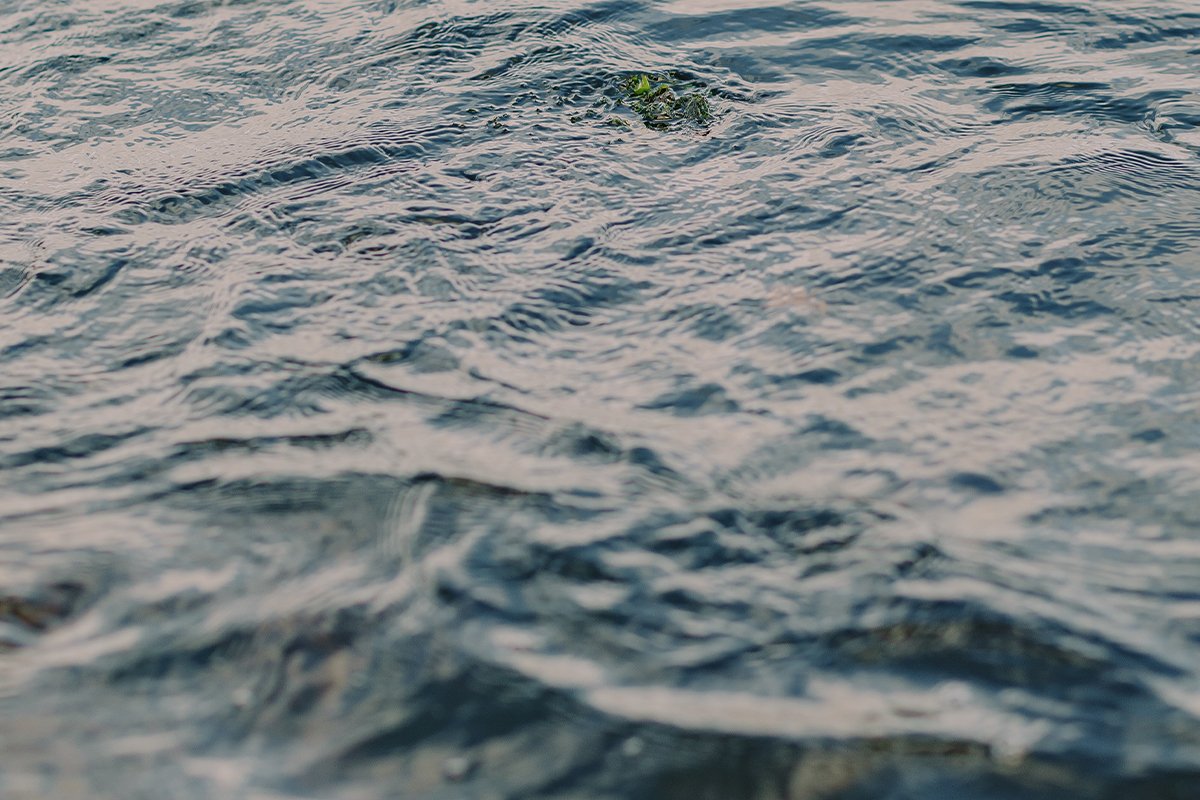
A simple text asking how someone’s doing can go a long way. They make the effort to call or message days, weeks, even months after the cremation, just to check in. They’ll also reach out on anniversaries. “It takes five seconds of your time, but it makes a massive difference to the family,” Brendan says. “And that’s just something that we both do a lot, consistently.”
It’s a lot to carry, but they’re happy to carry it. Death happens when it happens. Some months they work with one client, then another might bring seven, or even three in a single day. “You don’t get to put the Reaper on a monthly cycle,” Luke says. All of this is even more remarkable considering both men currently work jobs elsewhere, with their own families and social lives. How do they manage it all? With a shrug, Luke says, “You just do.”
Brendan hopes their work leaves a lasting impact. “The more families that we work with, the better the environment is going to be because of that,” he says.
Luke agrees. “You’d be hard-pressed to find a more beautiful place, certainly in the country, but realistically, in the world, as far as I’m concerned. It’s a real privilege to be here. And so taking care of that, and doing your best to make sure that place remains beautiful for the people who come after you is important.”
“But the place is also the people,” he adds. “So taking care of the people that are in the place that you live is just as important to me.”
We worked with southern Tasmanian writer Peter Burt and southern Tasmanian photographers Studio Hubert for this Tasmanian story.

Read about more Tasmanians
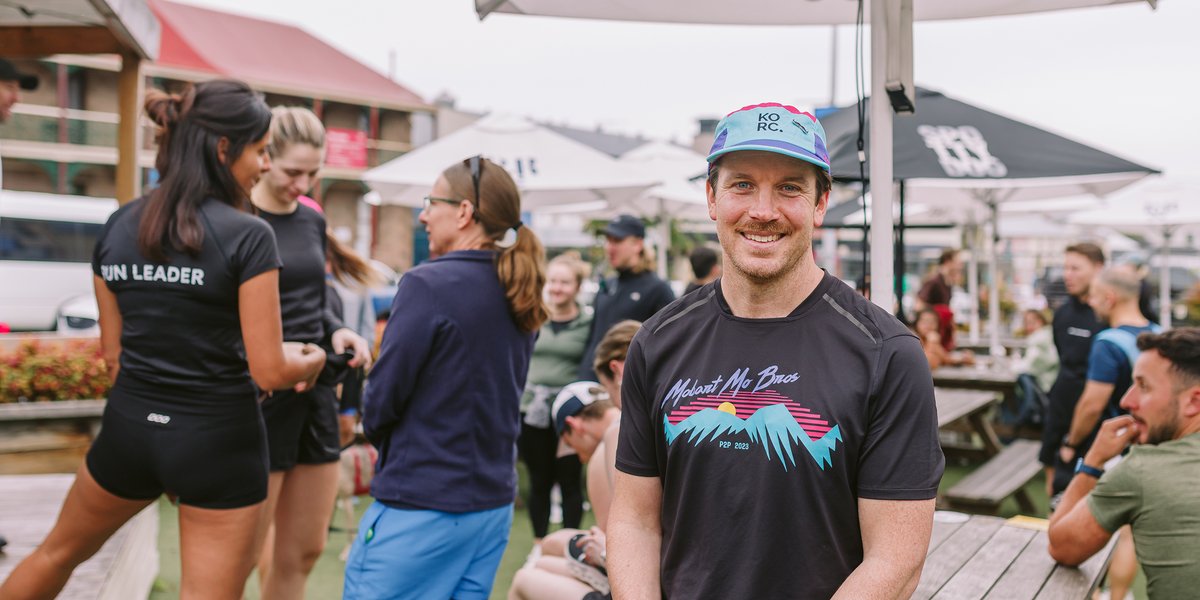
Tom Windsor
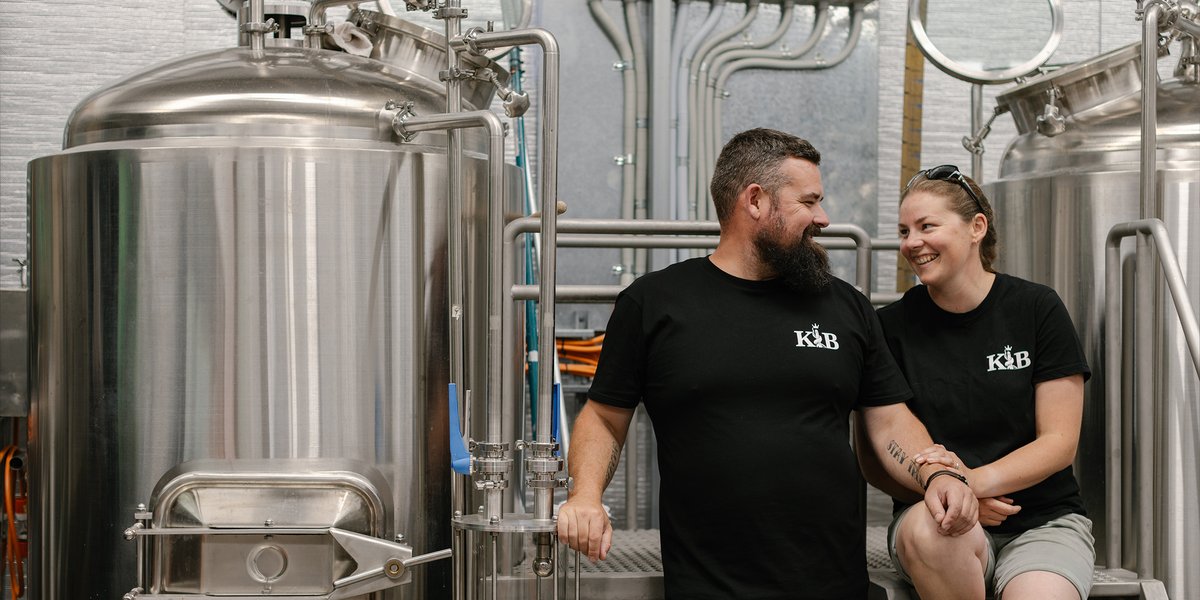
Sarah & Corey Brazendale
